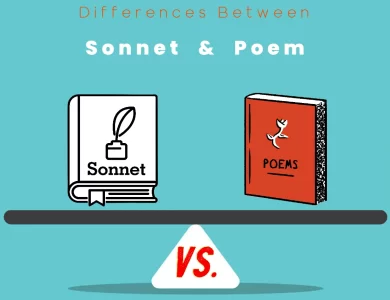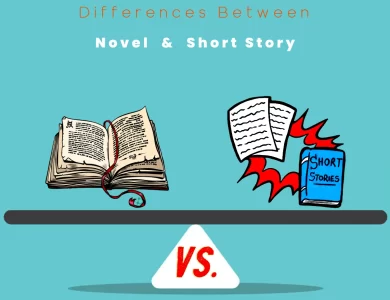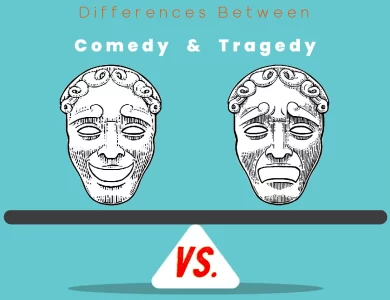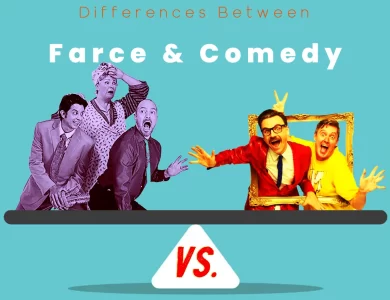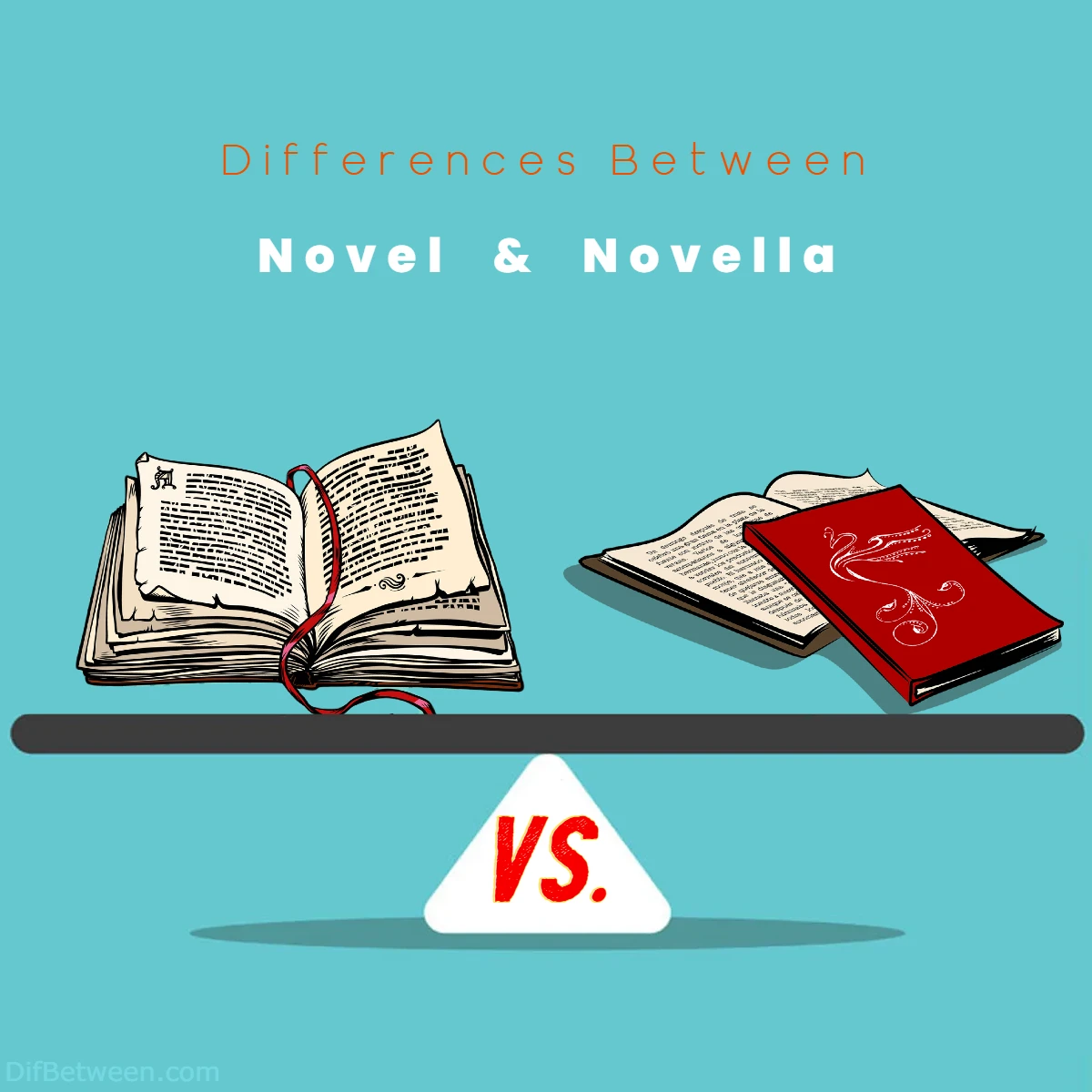
| Aspect | Novel | Novella |
|---|---|---|
| Definition | A work of fiction with 40,000 to over 100,000 words in length. | A shorter work of fiction with 20,000 to 40,000 words in length. |
| Narrative Complexity | Known for intricate and layered plots, often involving multiple subplots and character arcs. | Typically has a simpler, more focused narrative with fewer subplots. |
| Character Development | Allows for in-depth character development with rich backstories and motivations. | Character development is more concise, often relying on subtlety and nuance. |
| Plot and Subplots | Features complex and multifaceted plots, with the potential for numerous subplots. | Tends to have a more straightforward plot structure with fewer subplots. |
| Themes Exploration | Offers extensive exploration of complex themes and issues. | Focuses on a specific theme or idea with economy and precision. |
| Reading Time | Demands a significant time commitment, taking days or even weeks to complete. | Can typically be finished in a few hours or over a single day. |
| Writing and Publishing | A substantial writing project that may take months or years to complete. Often preferred by traditional publishers. | A more manageable writing project that can be completed in a shorter timeframe. Attractive for self-publishing and digital platforms. |
| Examples | Pride and Prejudice, Moby-Dick, War and Peace | Of Mice and Men, Animal Farm, The Metamorphosis |
| Pacing and Intensity | Offers varying pacing, including slow and contemplative moments as well as fast-paced action sequences. | Maintains consistent pacing and intensity throughout the narrative. |
| Setting and World-Building | Allows for extensive world-building and detailed setting descriptions. | Focuses on the immediate environment and atmosphere relevant to the story. |
| Reader Engagement | Provides opportunities for readers to form deep emotional connections with characters and the story’s world. | Offers a more concise reading experience with intense storytelling. |
| Flexibility and Versatility | Extremely versatile, enabling authors to experiment with various styles, themes, and structures. | Flexible and suitable for creative experimentation, exploration of niche themes, or unconventional storytelling. |
| Impact and Resonance | Can have a profound and lasting impact on readers, with enduring emotional resonance. | Delivers a powerful impact within a shorter timeframe, leaving readers with immediate intensity. |
Novels, with their sprawling narratives and multifaceted characters, beckon those with an appetite for deep immersion and intricate storytelling. They offer a literary odyssey where you can savor the flavors of complex themes, rich character arcs, and intricate plots. On the other hand, novellas are like literary gems, compact yet brimming with intensity. They cater to the craving for a succinct, focused narrative that can be devoured in one or two sittings.
Differences Between Novel and Novella
The main differences between a novel and a novella lie in their length and narrative complexity. A novel is a longer work of fiction, typically ranging from 40,000 to over 100,000 words, allowing for intricate plots, multifaceted characters, and extensive theme exploration. In contrast, a novella is shorter, falling between 20,000 to 40,000 words, and offers a more concise, focused narrative with simpler character development and fewer subplots. These distinctions in length and storytelling depth make each form unique, catering to different reading preferences and writing goals.
Definition and Length
Novel
A novel is a work of fiction that typically ranges from 40,000 to over 100,000 words in length. It is a substantial literary form that allows authors to explore complex plots, multifaceted characters, and intricate themes. Novels come in various genres, including romance, mystery, science fiction, fantasy, and more. This extended length provides authors with ample room for world-building, character development, and the exploration of multiple storylines and subplots.
Novella
On the other hand, a novella is a shorter work of fiction, falling between 20,000 to 40,000 words in length. Novellas offer a concise yet complete narrative experience. They often focus on a single central theme or idea and may have fewer characters and a simpler plot compared to novels. Novellas are known for their brevity, making them a popular choice for readers looking for a compelling story they can finish in one or two sittings.
Narrative Complexity
Novel
Novels are renowned for their narrative complexity. With their extensive word count, authors have the freedom to create intricate and layered plots. They can weave multiple storylines, subplots, and character arcs, allowing for a deep exploration of themes and emotions. Novels often provide readers with a comprehensive and immersive reading experience, as they have the space to build elaborate worlds and fully develop their characters.
Novella
In contrast, novellas tend to have simpler narratives. Due to their shorter length, authors must streamline their storytelling. This often results in a more focused and direct narrative. Novellas may still tackle profound themes and emotions, but they do so with economy and precision, emphasizing quality over quantity.
Character Development
Novel
Character development is a hallmark of novels. In longer works, authors have the luxury of time to delve deeply into the psyches of their characters. Readers can witness their growth, evolution, and transformation throughout the story. Novels allow for the creation of complex and multi-dimensional characters with rich backstories and motivations.
Novella
Novellas, given their shorter format, may not offer the same level of character development as novels. However, they can still create compelling characters, albeit with a more concise approach. Novella authors must skillfully reveal character traits and motivations within a limited word count, often relying on subtlety and nuance.
Plot and Subplots
Novel
Novels are known for their extensive and intricate plots. Authors can incorporate multiple subplots and storylines that interweave and contribute to the overall narrative. This allows for a more comprehensive exploration of the story’s themes and conflicts. Novels may have twists and turns, secondary character arcs, and a wide array of settings and events.
Novella
Novellas typically have a more straightforward plot structure. While they can still contain subplots, these are usually fewer in number and serve a more focused purpose. Novellas excel at delivering a single, powerful storyline that captivates the reader’s attention from beginning to end.
Themes and Theme Exploration
Novel
Novels often provide an extensive canvas for exploring complex themes. Authors can delve deeply into societal issues, philosophical questions, and moral dilemmas. The extended length of novels allows for a thorough examination of these themes, with multiple layers and perspectives.
Novella
Novellas concentrate on a specific theme or idea. They may explore it with intensity and precision, offering readers a concentrated dose of thought-provoking content. Novellas are an excellent choice for authors who want to tackle a particular theme in a concise yet impactful manner.
Reading Time
Novel
Novels demand a significant time commitment from readers. Depending on their length and complexity, it can take days or even weeks to complete a novel. This offers a prolonged and immersive reading experience.
Novella
Novellas are perfect for readers with limited time or those who prefer shorter, focused narratives. They can typically be finished in a few hours or over the course of a single day, making them an ideal choice for a quick and satisfying literary escape.
Writing and Publishing
Novel
Writing a novel is a substantial undertaking that requires careful planning, dedication, and a significant investment of time and effort. The process of writing a novel can take months or even years. Traditional publishers often seek completed manuscripts from authors.
Novella
Novellas are more manageable in terms of writing and can be completed in a shorter timeframe. Some authors use novellas as a stepping stone to longer works, honing their storytelling skills. Additionally, novellas can be an attractive option for self-publishing or digital publishing platforms, as they cater to readers seeking shorter content.
Examples of Novels and Novellas
To illustrate these differences, let’s take a look at some well-known examples:
Novels:
- Pride and Prejudice by Jane Austen (approx. 120,000 words)
- Moby-Dick by Herman Melville (approx. 206,000 words)
- War and Peace by Leo Tolstoy (approx. 587,000 words)
Novellas:
- Of Mice and Men by John Steinbeck (approx. 29,000 words)
- Animal Farm by George Orwell (approx. 30,000 words)
- The Metamorphosis by Franz Kafka (approx. 25,000 words)
Setting and World-Building
Novel
Novels often excel at creating rich and expansive settings. Authors have the space to meticulously craft the world in which their story unfolds. This can involve intricate world-building in genres like fantasy and science fiction, where the setting is almost a character itself. Novels provide room for detailed descriptions, cultural nuances, and historical backgrounds that immerse readers in the story’s universe.
Novella
Novellas may offer glimpses of intriguing settings but tend to focus more on the immediate environment and atmosphere relevant to the story. While they can still transport readers to unique places, the depth of world-building may not be as extensive as in novels.
Pacing and Intensity
Novel
Novels often feature varying pacing throughout the story. They can have slow and contemplative moments, followed by fast-paced action sequences. This dynamic pacing allows for a broader range of emotional experiences and keeps readers engaged over a more extended period.
Novella
Novellas tend to maintain a more consistent pacing due to their shorter length. They are often characterized by a sense of urgency and intensity throughout, as there is less room for extended exposition or leisurely exploration of subplots.
Reader Engagement
Novel
Novels have the advantage of creating long-lasting relationships between readers and characters. With more pages to invest in, readers can form deep connections with the protagonists and immerse themselves fully in the story’s world. This emotional investment can lead to a more profound and enduring impact on the reader.
Novella
Novellas offer a more concise reading experience, making them suitable for readers seeking a quick emotional journey. While novellas may not establish the same level of attachment as novels, they can still evoke powerful emotions and leave a lasting impression.
Flexibility and Versatility
Novel
Novels are incredibly versatile and can encompass a wide range of styles and themes. Authors can experiment with various narrative techniques, structures, and perspectives. This flexibility allows for the creation of diverse and innovative storytelling experiences.
Novella
Novellas, while more concise, can also showcase creativity and experimentation. Authors can use novellas to explore unconventional narrative formats or tackle niche themes. The shorter length can be liberating for writers seeking to experiment with their craft.
Impact and Resonance
Novel
Novels have the potential to offer a profound and lasting impact on readers. The extended time spent with characters and themes can lead to a more profound emotional resonance. Classic novels, in particular, have left an indelible mark on literature and culture.
Novella
Novellas can deliver a powerful impact within a shorter timeframe. They often leave readers with a sense of immediacy and intensity, making them ideal for conveying specific emotions or ideas effectively.
Novel or Novella : Which One is Right Choose for You?
Are you an avid reader looking for your next literary adventure? Perhaps you’re an aspiring writer trying to decide which storytelling format suits your creative vision best. In the vast realm of literature, two intriguing options await your exploration: novels and novellas. Each offers a distinct reading or writing experience. Let’s dive into the considerations that can help you determine whether a novel or novella is the right choice for you.
Your Reading Preferences
Novel
Consider choosing a novel if:
- You Love Immersive Storytelling: Novels provide an immersive experience with extensive world-building, intricate plots, and multifaceted characters. If you enjoy getting lost in a story for an extended period, novels offer the depth and complexity you crave.
- You Have Time for a Longer Reading Journey: Novels demand a significant time commitment. If you have the luxury of spending days or even weeks with a book, novels can provide a rewarding, in-depth experience.
- Complex Themes and Multiple Subplots Excite You: Novels excel at exploring complex themes and weaving together multiple subplots. If you appreciate layered narratives and character development, novels offer a broad canvas for these elements.
- You Seek Enduring Emotional Connections: Longer narratives allow readers to form deep emotional connections with characters. If you enjoy feeling deeply attached to the protagonists and the story’s world, novels can provide that lasting emotional impact.
Novella
Consider choosing a novella if:
- You Prefer Shorter, Focused Stories: Novellas are perfect for readers seeking concise yet impactful narratives. If you want a complete story you can finish in one or two sittings, novellas offer a satisfying reading experience.
- You Have Limited Reading Time: Novellas are ideal for busy readers who have limited time for extended reading. If you’re looking for a quick literary escape during a lunch break or before bed, novellas are a great choice.
- You Value Intense and Direct Storytelling: Novellas maintain a consistent pacing and intensity throughout, making them suitable for readers who prefer a sense of urgency in their storytelling.
- You Appreciate Concise Theme Exploration: Novellas often focus on a single theme or idea with precision and depth. If you’re interested in a concentrated exploration of a particular topic, novellas deliver thought-provoking content.
Your Writing Goals
Novel
Consider writing a novel if:
- You Have a Complex, Multi-Layered Story to Tell: Novels provide ample space for complex narratives with multiple subplots, character arcs, and world-building. If your story requires depth and intricacy, a novel is the ideal format.
- You Are Willing to Dedicate Significant Time and Effort: Writing a novel is a substantial undertaking that demands dedication and perseverance. If you’re ready for a long-term writing project, novels offer a rewarding challenge.
- Character Development and Exploration Are Key: Novels allow authors to delve deep into character development. If creating rich, multi-dimensional characters with detailed backstories and motivations is essential to your storytelling, a novel is the right choice.
- You Aim for Traditional Publishing or a Substantial Literary Work: If you’re pursuing traditional publishing or aiming to create a substantial literary work, novels are often preferred by publishers and literary agents.
Novella
Consider writing a novella if:
- You Want a Manageable Writing Project: Novellas are more concise and can be completed in a shorter timeframe. If you’re looking for a quicker writing project that allows you to hone your storytelling skills, novellas are a practical choice.
- You Seek Creative Experimentation: Novellas are flexible and can be used to experiment with narrative techniques, structures, and themes. If you want to explore unconventional storytelling formats, novellas offer creative freedom.
- You Are Considering Self-Publishing or Digital Platforms: Novellas can be an attractive option for self-publishing or digital publishing platforms. They cater to readers seeking shorter content and can be an excellent entry point for emerging authors.
- You Wish to Convey a Specific Idea or Emotion Concisely: Novellas are excellent for conveying a particular emotion, theme, or idea with intensity and precision. If you have a focused message or story to tell, novellas allow you to do so effectively.
Conclusion
Whether you choose to dive into the depths of a novel or savor the succinctness of a novella, the world of literature offers a diverse array of storytelling possibilities. As a reader, consider your preferences for immersion, reading time, and emotional impact. As a writer, align your creative vision and goals with the format that best suits your story and aspirations.
In the end, both novels and novellas contribute to the richness of literature, and your choice depends on what resonates with you personally. So, embark on your literary journey with confidence, knowing that the world of fiction welcomes you to explore, experience, and embrace the magic of storytelling in all its forms.
FAQs
The primary difference lies in their length and complexity. A novel is a longer work of fiction, typically over 40,000 words, with intricate plots and extensive character development. In contrast, a novella is shorter, usually between 20,000 to 40,000 words, with a more concise and focused narrative.
Novels require a more significant time commitment and can take days or even weeks to read, while novellas are designed for quicker reading, often finished in a few hours or a single day.
Yes, novels allow for in-depth character development with rich backstories and motivations, while novellas provide more concise character development, often relying on subtlety and nuance.
Certainly! Some classic novels include “Pride and Prejudice” and “Moby-Dick,” while famous novellas include “Of Mice and Men” and “The Metamorphosis.”
It depends on your creative vision and goals. Novels offer a substantial writing challenge and are suitable for traditional publishing, while novellas provide a quicker writing project, ideal for self-publishing or digital platforms.
Readers who enjoy immersive, complex stories and have time for extended reading should choose novels. Those with limited time seeking concise, intense narratives should opt for novellas.
Absolutely! Novellas can deliver a powerful impact within a shorter timeframe, often leaving readers with immediate intensity and resonance.
Yes, novellas are flexible and allow for creative experimentation with narrative techniques, themes, and structures.
Novels offer varying pacing, including slow and fast moments, while novellas maintain a more consistent pacing and intensity throughout.
Novels often have more extensive world-building, while novellas focus on immediate settings and atmospheres relevant to the story.
Read More:
Contents

